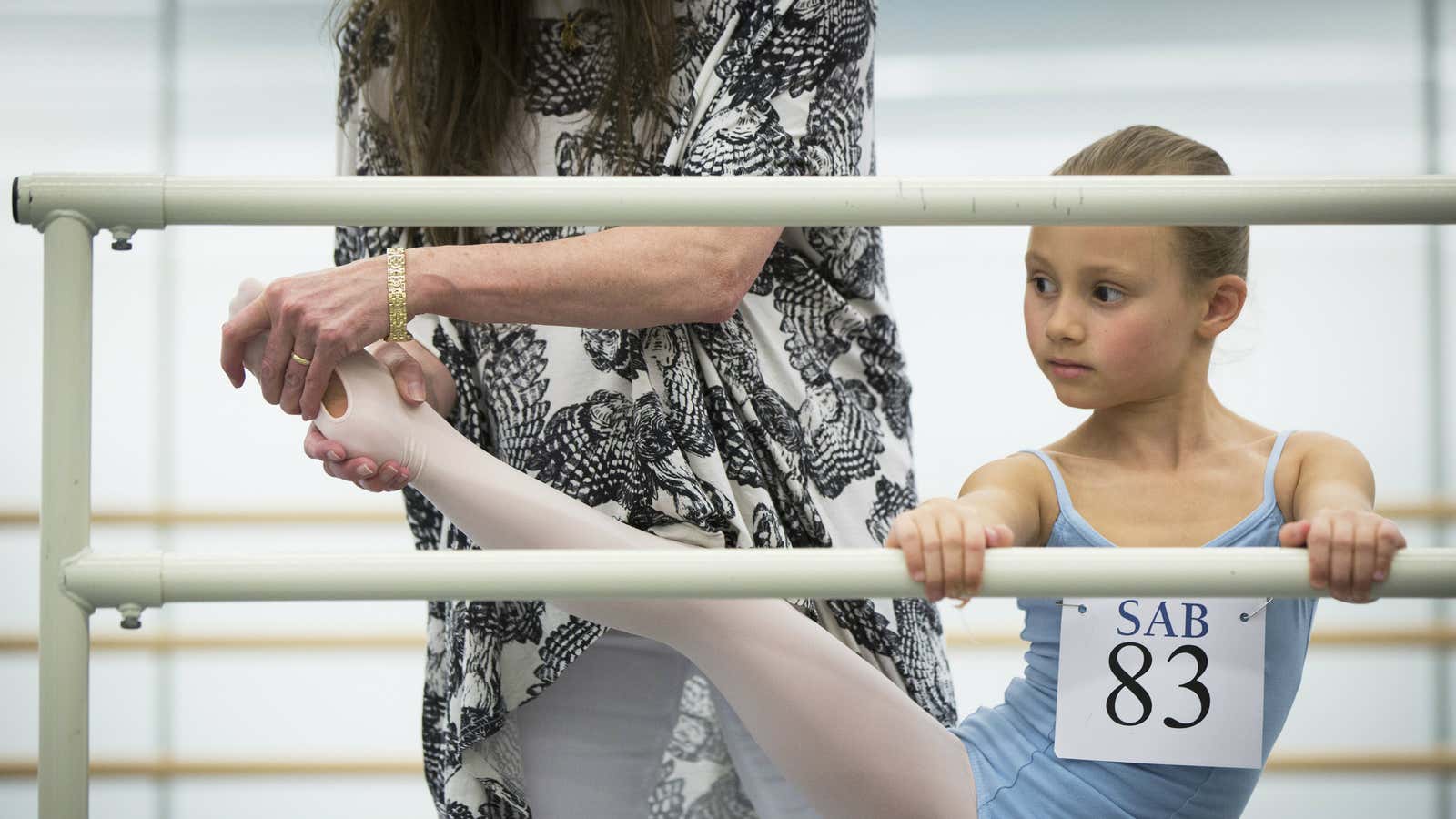Pushing children too hard, such as in pursuit of good grades, may lead to unintended consequences, research suggests.
In a five-year study with primary school children, researchers found that children with intrusive parents had a higher tendency to be overly critical of themselves, and this tendency increased over the years.
“When parents become intrusive in their children’s lives, it may signal to the children that what they do is never good enough,” says Ryan Hong, an assistant professor at the National University of Singapore who led the study.
“As a result, the child may become afraid of making the slightest mistake and will blame himself or herself for not being ‘perfect.’ Over time, such behavior, known as maladaptive perfectionism, may be detrimental to the child’s well-being as it increases the risk of the child developing symptoms of depression, anxiety, and even suicide in very serious cases.”
Two kinds of perfectionism
The study examined two aspects of maladaptive perfectionism in children: self-criticalness, which is a person’s tendency to be overly concerned with their mistakes and imperfections; and socially-prescribed perfectionism, in which a person perceives others as expecting perfection from them.
In the study, Hong and his team recruited children who were seven years old from 10 primary schools in Singapore, and for each family, the parent more familiar with the child was involved in the study. The research was conducted over a five-year period, from 2010 to 2014.
While other studies on maladaptive perfectionism focused primarily on adolescents and college students, this study demonstrates the link between parental intrusiveness and self-criticalness among young primary school children.
To assess parental intrusiveness, researchers had children play a game while accompanied by their parents. In the game, the child had to solve puzzles within a time limit, and the parent was told that he or she could help the child whenever necessary. An example of a highly intrusive parental behavior would be the parent taking over the game to retract a move made by the child. The purpose of this task was to observe whether or not the parent interfered with the child’s problem-solving attempts, regardless of the child’s actual needs.
The research team observed the participants’ behaviors, and coded intrusive behaviors exhibited by the parents in the context of the game. Subsequent assessments on the children took place at ages eight, nine, and eleven. Children and parents reported the children’s maladaptive perfectionism and symptom levels.
Analysis of the data collected from 263 children showed that about 60% of them were classified as high and/or increasing in self-criticalness, while 78% of the children was classified as high in socially-prescribed perfectionism. Both aspects of maladaptive perfectionism tend to co-occur, with 59% of the children having both self-criticalness and socially-prescribed perfectionism.
“Our findings indicate that in a society that emphasizes academic excellence, which is the situation in Singapore, parents may set unrealistically high expectations on their children. As a result, a sizable segment of children may become fearful of making mistakes. Also, because they are supposed to be ‘perfect,’ they can become disinclined to admit failures and inadequacies and seek help when needed, further exacerbating their risk for emotional problems,” explains Hong.
Advice for parents
So, what can parents do to encourage—rather than pressure—their children? High expectations may be unavoidable, but Hong advises parents to be mindful of not pushing their children over the edge. “Children should be given a conducive environment to learn, and part of learning always involves making mistakes and learning from them. When parents become intrusive, they may take away this conducive learning environment,” he says.
“One small practical tip might be the way we ask our children about their academic performance. For instance, instead of asking, ‘Did you get full marks on your test?’ parents can try asking, ‘How did you do on your test?’. The former question conveys a message to the child that he or she is expected to get full marks on the test while the second question does not convey such a message,” Hong suggests.
If a child does not do as well as expected on a test, parents should refrain from blaming the child for not performing up to expectations, Hong advises. Instead, parents should first praise the child for his/her achievements before turning to the mistakes. Parents should take the opportunity for a learning exercise, rather than an evaluative one, by helping the child learn from his/her mistakes.
The findings of this study appear in the Journal of Personality. The Singapore Children’s Society and the Ministry of Social and Family Development supported the work.
This post originally appeared at Futurity. This post was edited for style, and republished under the Attribution 4.0 International Creative Commons license.
